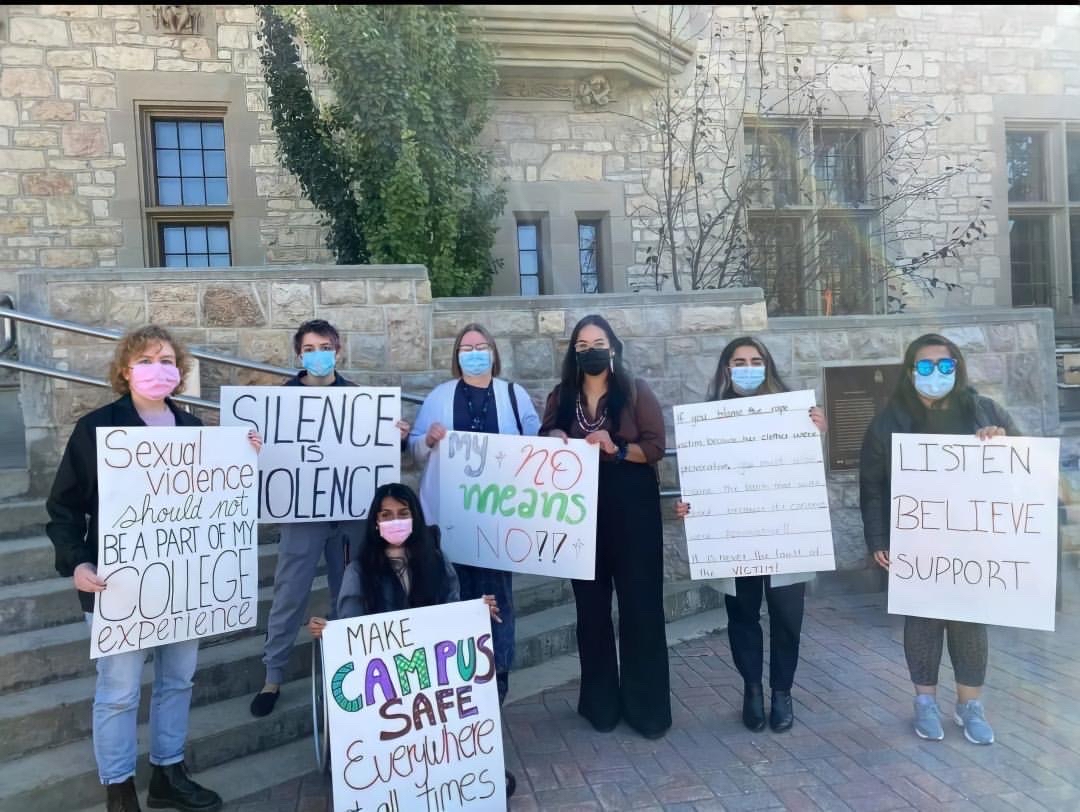
During the pandemic, the University of Saskatchewan saw an increase in the enrollment of international students. This seems like something to be proud of — but a higher number of international students does not mean our needs are being catered to. Inclusion and belonging are parts of the picture that don’t get painted.
Spoiler alert — there isn’t a lot of data and resources on the impact of sexual violence on international students. From the data available, we know that, despite international student enrollment increasing, they are mostly left out of research on campus sexual violence.
In the context of campus sexual violence, YWCA Canada also notes that “international students are less likely to take action and/or seek support in fear of retaliation.” This shouldn’t come as a surprise, as international students often have no support systems, or at least limited ones. Not to mention that sexual violence is often inflicted from people you know and are close to. This may further limit international students’ support system.
Since 2018, my experience as an international student and my interactions with other international students definitely taught me one thing — there are many unaddressed systemic barriers that international students face when accessing support after traumatic events.
The USSU Help Centre offers a Mental Health Support group which I ran during my second year at the U of S. I found that most students who sought help by coming to the group discussions had recently immigrated here, and many volunteers at the Help Centre were international students too.
Soon enough, the lack of safe and adequate resources on campus led to the Help Centre Coordinator initiating a similar group specifically for international students. The lack of professional support with issues impacting our mental health was always a recurring theme in these conversations. A lot of us felt isolated and unsupported on an institutional level.
The only campus-service where students can access non-emergent professional mental health support is the Student Wellness Centre. It took me over a month to get my first counselling appointment in the fall of 2020. Additionally, if my counselor or I have to cancel an appointment, there won’t be another one for at least three 3 weeks. Many friends I’ve spoken to have also said the same thing.
Despite the university stating that they prioritize international students’ well-being and success , there are no specialized or additional resources for international students offered through Student Wellness. In fact, during the pandemic, Student Wellness added a disclaimer to their website stating that they cannot provide any services for students residing out of Canada. In my experience and from the research I’ve done, the International Student and Study Abroad Centre does not offer professional supports for wellness and safety either.
Moreover, the U of S has few practitioners who are immigrants or BIPOC (Black, Indigenous, and People of Colour). This means that international students may not feel safe enough to access medical or mental health help due to lack of representation. If we do access it, we may receive inadequate care and support due to a lack of understanding of how cultural factors or racism affect our mental health.
We are often met with stereotypes, hostility and become accustomed to dealing with social and financial challenges on our own. If you are a person of colour, disabled, queer, neurodivergent or a marginalized gender, it more often than not complicates the barriers you face to access adequate help to meet your wellness and safety needs.
Saskatchewan has a post-secondary International Education Strategy and the U of S has an International Plan, both focusing heavily on bringing more international students to the province and the university. However, I see this as intentional marketing and branding to increase international student recruitment and diversity on campus. While the focus seems to be on bringing more money to the university, there are not enough initiatives to promote equity, belonging and true inclusion.
Moving, adapting and sustaining a life as an international student can be traumatic simply because of the lack of support for wellness and safety. Under such a system where I believe that hollow claims of welcoming and properly supporting international students are made, how are we supposed to rely on the institutions in traumatic situations?
The pandemic has created more nuanced challenges for international students, specifically regarding their wellness and safety. It’s time for the university to fulfill their promise of a safe and equitable campus environment for international students.
—
This op-ed was written by a University of Saskatchewan undergraduate student and reflects the views and opinions of the writer. If you would like to write a reply, please email opinions@thesheaf.com. Harleen is a fourth-year undergraduate student studying Human Resources.
Photo: Supplied by Harleen Arora
Leave a Reply